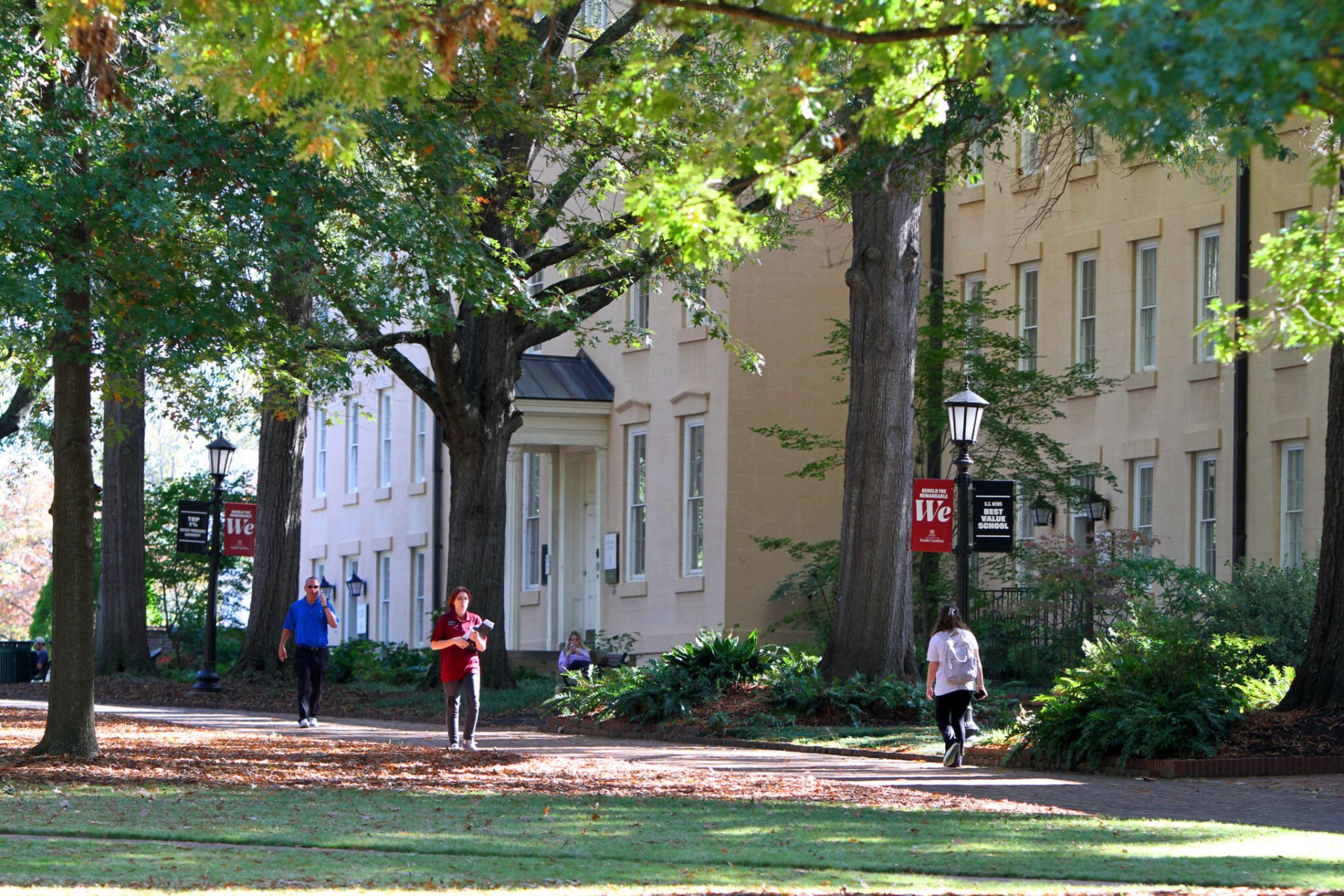School cites funding issues in elimination of program
By Jessica Holdman
SCDailyGazette.com
COLUMBIA – The University of South Carolina is ending a program that sought to improve Black students’ success in school by training K-12 teachers how to incorporate their experiences into classroom lessons.
The governing board for the state’s largest university system voted Friday to end the Center for the Education and Equity of African American Students — a division of USC’s College of Education — stating it was not financially viable, a requirement for all university programs. The program’s cost and potential shortfalls were not discussed.
The decision immediately ends all training seminars for K-12 teachers on culturally responsive instruction, which basically means using what students are familiar with to get them interested and help them understand.
An online list of the center’s lessons includes “math is natural,” how hair braiding can be used to teach patterns and math; “hip hop science,” using raps to learn the makeup of atoms; and “what’s in MY name,” engaging students by having them research their name’s origin.
USC Provost Donna Arnett told the board the center’s executive director agreed to end the outreach program. The director is still an education professor at USC, and her classes for college students are unaffected.
The program’s discontinuation falls against a backdrop of political pressure surrounding diversity, equity and inclusion programs and attempts to restrict how teachers discuss race in K-12 classrooms in South Carolina and across the country.
USC spokesman Jeff Stensland said the decision to end the program is in no way related to Statehouse debates over DEI initiatives or the research conducted by the center or its director.
The center’s director did not respond to messages from the S.C. Daily Gazette.
Mark Minett, a professor and president of the USC chapter of the American Association of University Professors, said funding issues are common for academic centers. He was not familiar with the financial health of this particular initiative but said he hopes the USC board judged it objectively, especially given the pushback on diversity and equity programs.
“Now is the time to be vigilant and ask questions and make sure the standards are fairly applied,” he said.
USC College of Education professor and researcher Gloria Boutte founded the center in 2017 in an effort to help school districts improve attendance rates and close learning gaps.
“There are documented examples of schools across the country that are effectively teaching African American students — even students from lower socioeconomic statuses. So, it can be done,” Boutte said in a statement announcing the center. “Through partnerships with public schools across the state and through numerous outreach programs, the center aims to improve academic and cultural outcomes for Black students. By drawing from research about the most effective ways to instruct, educators can teach African American students in culturally relevant ways.”
But her work also made her a target for politicians as conservatives nationwide pushed bans on so-called “critical race theory.”
Boutte’s research focuses on culturally relevant teaching, which seeks to connect students’ cultures, languages, and life experiences to what they learn in school. It’s a different concept from critical race theory, which recognizes systemic racism in society and how laws and policies, even those not explicitly about race, can cause or worsen racial disparities, according to the Anti-Defamation League.
Still, Boutte was among university professors attacked in online posts starting in 2021, when legislators banned the teaching of eight race-centric concepts from K-12 schools.
The next year, legislators started debating a bill that would require factual, impartial classroom discussions on history, amend the list of banned concepts and create a statewide process for parental complaints.
Ultimately, the legislation failed twice. The first bill died in 2022 without a vote in the Senate. The latest push was defeated in June when a compromise worked out by a House-Senate panel failed to get the necessary supermajority support. But the list of what’s banned through the state budget remains unchanged.
Banned concepts include any race being “inherently superior” to another, anyone being responsible for past atrocities because of their race, and that traits such as hard work are oppressive and racist.
Also still law is the line legislators of both parties agreed could stifle instruction, which the failed legislation purposefully left out. That line bans lessons that make a student “feel discomfort, guilt, anguish, or any other form of psychological distress on account of his race or sex.”
The law bans school districts from using state aid to train teachers or buy materials incorporating the banned concepts. It does not ban training related to unconscious bias or issues related to historical discriminatory policies. It also doesn’t apply to colleges.
A separate bill banning public colleges from factoring applicants’ political stances into hiring, firing and admission decisions passed the state House but died with the end of session without a vote in the Senate.
But USC had already struck the terminology “diversity, equity and inclusion” from a cabinet-level office in August 2023. It also changed the title of its leader, Julian Williams, to vice president of access, civil rights and community engagement.
Four months later, Clemson University renamed its own equity and inclusion office, changing it to the Division of Community Engagement, Belonging and Access.
Boutte herself has served as associate dean for diversity, equity and inclusion within USC’s college of education in 2023. But in further scrubbing of that language from university roles, USC has changed the title of that job to associate dean for democracy, education, and inclusivity.
Elsewhere, the University of South Alabama eliminated its diversity, equity and inclusion offices amid a new state law limiting the use of public funds for such offices. And in North Carolina, the University of North Carolina system repealed its policy on diversity, equity and inclusion. UNC Chapel Hill struck DEI-related funding from its budget.





